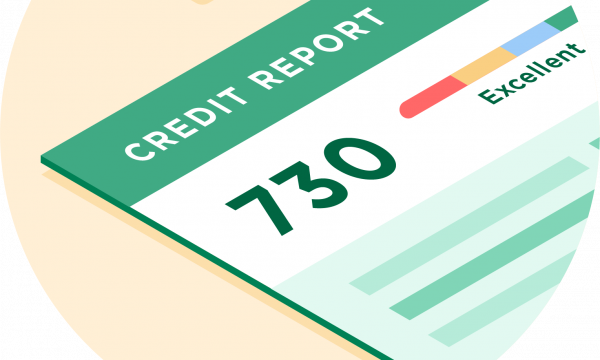How Long Do Derogatory Marks Stay on Your Credit?
Missed payments, collections and other derogatory marks can stay on your credit reports for seven years or more.

Many, or all, of the products featured on this page are from our advertising partners who compensate us when you take certain actions on our website or click to take an action on their website. However, this does not influence our evaluations. Our opinions are our own. Here is a list of our partners and here's how we make money.
Derogatory marks on your credit are negative items such as missed payments, collections, repossession and foreclosure. Most derogatory marks stay on your credit reports for about seven years, and one type may linger for up to 10 years.
Negative marks can damage your credit score, which means you may not qualify for new credit or may pay more in interest on loans or credit cards.
» Get your free credit report from NerdWallet today.
The good news is you can start working to restore your credit right away.
Stress less. Track more.
See the full picture: savings, debt, investments and more. Smarter money moves start in our app.
Types of derogatory marks and how long they last
Missed payments: 7 years
If you are at least 30 days late, expect a derogatory mark on your credit report. Missed payments typically stay on your credit reports for 7 years from the date the account was first reported late. The later the payment goes — moving to 60 days late, 90 days late and so on — the greater the damage to your credit scores.
What to do: Pay your bill as soon as you can afford to. If you’ve never or rarely been late before, you might be able to get the creditor to drop the late fee. Call the customer service number, explain your oversight and ask if the fee can be removed. You can also write a goodwill letter. If paying the bill is not an option, call your creditor and let them know about your financial situation to see if you can work out a hardship plan.
The negative effect on your credit scores will fade over time. Try to stay on top of all your payments so positive information in your credit reports dilutes the effect of the missed payment.
Account charge-off: 7 years
If you don’t or cannot pay your debt as agreed, your lender may eventually charge the account off. That means the lender writes the debt off as a loss. The charge-off will appear on your credit reports for seven years after the missed payment.
What to do: Try to pay off the debt or negotiate a settlement. While this won’t get the charge-off removed from your credit reports, it'll remove the risk that you’ll be sued over the debt.
Repossession: 7 years
If you don’t or cannot pay for an item, such as a car, as agreed, the lender can come and get it, often without warning. A repossession will stay on your credit reports for seven years after the account was first reported late.
What to do: Keep all other bills up to date, if possible. Positive information such as on-time payments, along with the passage of time, can start to mitigate the damage to your credit.
Collections: 7 years
A creditor that’s not seeing payment may send or sell the debt to a debt collector. Having an account in collections is a serious negative that stays on your credit reports for seven years. A debt collector may remove a collections account from your report under a pay for delete agreement. But this is a rare (and questionable) move that reporting agencies don't recommend.
What to do: Make a plan to pay off the collection once you verify that the collection agency actually owns the debt. That won’t get the mark off your credit reports, but it'll remove the risk you could be sued. Medical bills in collections work a little differently.
Like other negative marks, the damage fades over time if you don’t add other derogatory marks on top of it. Paid-off collections still factor into FICO 8 credit scores, the ones most widely used in lending decisions. But some credit scoring models, such as VantageScore 3.0 and the FICO 9, ignore paid collections.
Student loan delinquency or default: 7 years
Late student loan payments can start to hurt your credit after 30 days for private student loans and 90 days for federal student loans, and those delinquencies stay on your credit report for seven years.
Federal student loans go into default if you don’t make a payment for 270 days. And the government has strong debt-collection powers: It can garnish your wages, Social Security benefits or tax refunds. With private student loans, your lender can term you in default as soon as you’re late, but it has to take you to court before it can force repayment.
What to do: If you’ve paid late but haven’t defaulted, consider switching to an income-driven repayment plan, putting your loan in deferment or forbearance, or asking your lender for a modified payment plan.
If you’ve defaulted on your federal student loans, the government offers three options: Repayment, rehabilitation and consolidation.
Bankruptcy: 7 to 10 years
How long bankruptcy stays on your credit report depends on which type you file.
There are two common types of personal bankruptcy. A Chapter 7 bankruptcy will stay on your reports for up to 10 years. Chapter 13 bankruptcy sticks around for seven years.
What to do: Begin to re-establish credit. A secured credit card or a credit-builder loan can help people build credit when they can't qualify for unsecured credit. And note that credit scores can rebound from bankruptcy sooner than you may think.
Foreclosure: 7 years
If you fail to make payments on your home and the bank seizes it, the foreclosure will be reported to the credit bureaus and the mark will stay on your credit reports for seven years.
What to do: Keep your other credit lines open and try to pay them on time. You want to build up all the positive payment information you can. Note that the waiting period after foreclosure is shorter than in the past, so keep polishing your credit and you could re-enter the housing market sooner than you expected.
What to do about derogatory marks on your credit reports
If the derogatory mark is in error, you can file a dispute with the credit bureaus to get negative information removed from your credit reports. You can see all three of your credit reports for free on a weekly basis.
If the derogatory marks are not errors, you'll need to wait for them to age off your credit reports. (Hard inquiries, such as when you apply for a loan or credit card, are not considered derogatory marks. They stay on your credit report for about two years but stop affecting your score sooner than that.)
How to mend your score after a derogatory mark
The good news is, making even a little progress to improve your credit standing after a derogatory mark can give you better financial options.
Begin to restore your credit by following these tips:
- Try to make payments on time. Payments have the biggest influence on credit scores, so try to pay at least the minimum by the due date. If you aren’t in a position to pay your bills, learn how to limit the damage to your finances.
- Try to keep credit card balances below 30% of the credit limit. The second-biggest influence on your score is a factor called credit utilization, which is how much of your available credit you use.
- Look into using tools like a credit-builder or share-backed loan, becoming an authorized user on the credit card of someone with good credit, or getting credit with a co-signer.
Get your credit report in Spanish
🤓 Nerdy Tip
You can request your credit report in Spanish directly from each of the three major credit bureaus:· TransUnion: Call 800-916-8800.
· Equifax: Visit the link or call 888-378-4329.
· Experian: Click on the link or call 888-397-3742.
🤓 Consejo Nerdy
Usted puede solicitar una copia de su informe crediticio (gratis y en español) de cada una de las tres principales agencias de crédito:
· TransUnion: Llame al 800-916-8800.
· Equifax: Visite el enlace o llame al 888-378-4329.
· Experian: Haga clic en el enlace o llame al 888-397-3742.
Stress less. Track more.
See the full picture: savings, debt, investments and more. Smarter money moves start in our app.
Article sources
NerdWallet writers are subject matter authorities who use primary,
trustworthy sources to inform their work, including peer-reviewed
studies, government websites, academic research and interviews with
industry experts. All content is fact-checked for accuracy, timeliness
and relevance. You can learn more about NerdWallet's high
standards for journalism by reading our
editorial guidelines.
Related articles







